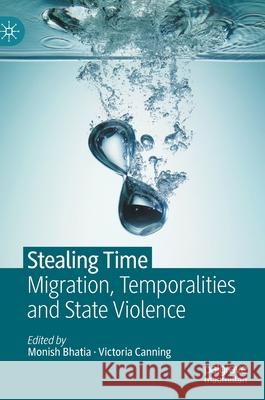Stealing Time: Migration, Temporalities and State Violence » książka
topmenu
Stealing Time: Migration, Temporalities and State Violence
ISBN-13: 9783030698966 / Angielski / Twarda / 2021 / 233 str.
Kategorie:
Kategorie BISAC:
Wydawca:
Palgrave MacMillan
Język:
Angielski
ISBN-13:
9783030698966
Rok wydania:
2021
Wydanie:
2021
Ilość stron:
233
Waga:
0.47 kg
Wymiary:
21.01 x 14.81 x 1.6
Oprawa:
Twarda
Wolumenów:
01
Dodatkowe informacje:
Wydanie ilustrowane











